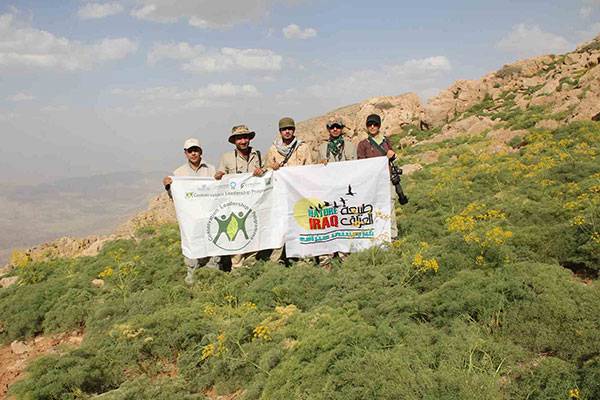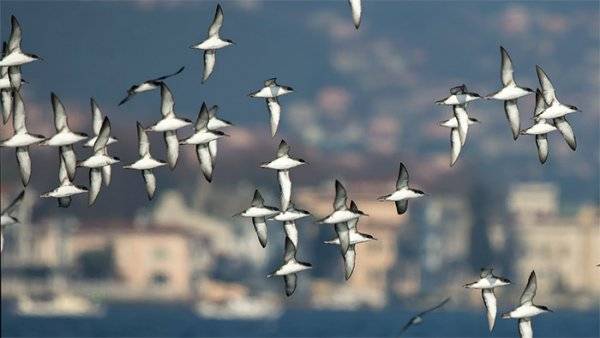A guest blog by Lloyd Scott
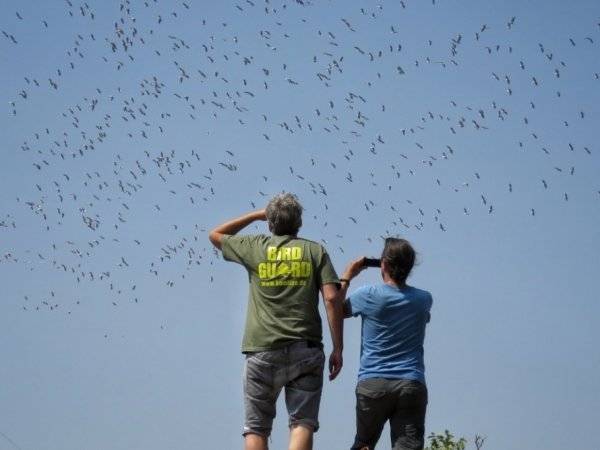
The Committee Against Bird Slaughter (CABS) is a European bird protection NGO based in Bonn Germany. Each year, we bring together around 250 volunteers from across the globe to conduct strategic ‘bird protection camps’ in the poaching hotspots for migratory birds in and around the Mediterranean basin area – such as Cyprus, Malta and Italy. Our teams conduct field investigations to document and report illegalities and assist the authorities in enforcing the law.
In recent years, the scale of illegal poaching occurring in Lebanon has become increasingly apparent, as images of trophy hunters posing with dead or injured protected birds began to flood social media platforms.
Lebanon lies on the main eastern flyway between Europe and Africa and is a vital ‘bottleneck’ area for migratory birds. With this sharp density of birds during peak migration, comes a high density of poaching. Regulated hunting was technically banned in the country for several decades and a recent study by BirdLife International, concluded that 2 – 3 million protected birds are shot or trapped each year.
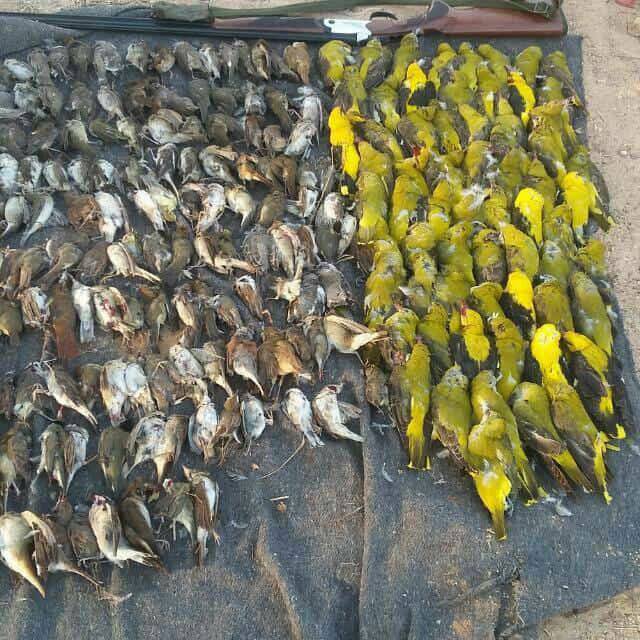
In September 2017, The Lebanese Ministry of the Environment implemented new hunting laws, restricting shooting to 14 “game” species between September and January, in an attempt to curb the indiscriminate killing. This made conditions ripe for CABS to conduct the first ever bird protection camp in Lebanon, together with support from the BirdLife Partner – Society for the Protection of Nature in Lebanon (SPNL) and local pro-regulation hunting groups within the newly formed Middle Eastern Sustainable Hunting Centre (MESHC).
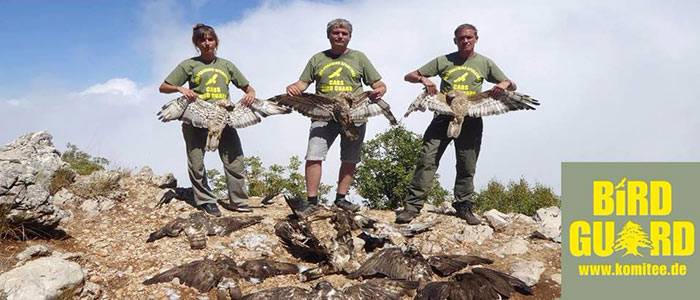
Our patrols led us to a site on the slopes of Mount Lebanon, near Beirut. Over several consecutive days, what started as a jaw-dropping spectacle of wild bird migration with hundreds of birds of prey, pelicans and storks passing overhead, soon turned into what can only be described as a bloodbath, the likes which I have never seen before. We recorded 100s of protected raptors, mostly honey buzzards, being killed all within a relatively small area high in the mountain corridors. The Internal Security Forces (enforcement authority) were called to the scene but given the number of incidents in the vicinity it was near impossible to confirm and convict any one individual suspect.
In spring 2018, our teams recorded dozens of people shooting near a residential area on the outskirts of Beirut, blasting hundreds of swallows and martins as they passed overhead. Led by adults, some of the shooters were as young as 10 years old! As police arrived, the majority of shooters quickly fled, but 3 poachers were convicted, fined and had their weapons confiscated – small steps in turning the tide as the law is applied for the first time. As is similar to the situation in Cyprus, we also found and reported several sites with large mist nets used to catch songbirds. As well as several supermarket chains stocked with plucked songbirds in the freezer section – no doubt representing barely the tip of the iceberg.

In autumn 2018, with more experience under our belts and a better sense of where to focus our efforts, we returned to Mount Lebanon and Bekaa Valley areas to see if the authorities were pushing resources into the confirmed hotspot areas identified over the past 12 months.
Given the sheer scale of incidents recorded we were forced to prioritise where to direct the authorities. It was clear that for the vast majority of hunters all ‘small’ passerines such as swallows, bee-eaters, warblers and finches were deemed fair game – to which we took an educational approach -handing out leaflets and talking about the rationale behind the new law. Some hunters even openly bragged about the thrill of shooting down storks and eagles ‘for fun’. In an area of <5km2 our teams found >1000 dead and injured raptors including honey buzzards, harriers, hawks, owls, falcons and eagles.
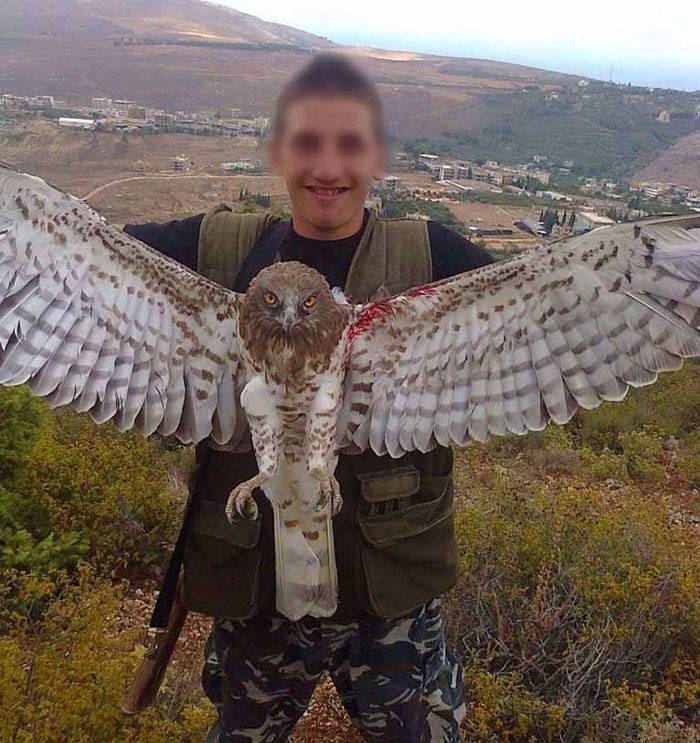
Furthermore, as part of a joint research project between CABS and the German journal ‘Der Falke’, shows that for species such as the Lesser Spotted Eagle – almost the entire European breeding population will migrate through a narrow corridor of just 20km wide and from collating the evidence gathered from the field including ring recoveries, rehabilitators etc we can conclude that around 5000 are killed each year as they pass through the Lebanon alone. Clearly, given the population size and low rate of reproduction, poaching in the Lebanon is having a detrimental impact on conservation efforts in Europe as well as the future survival of certain species of conservation concern.
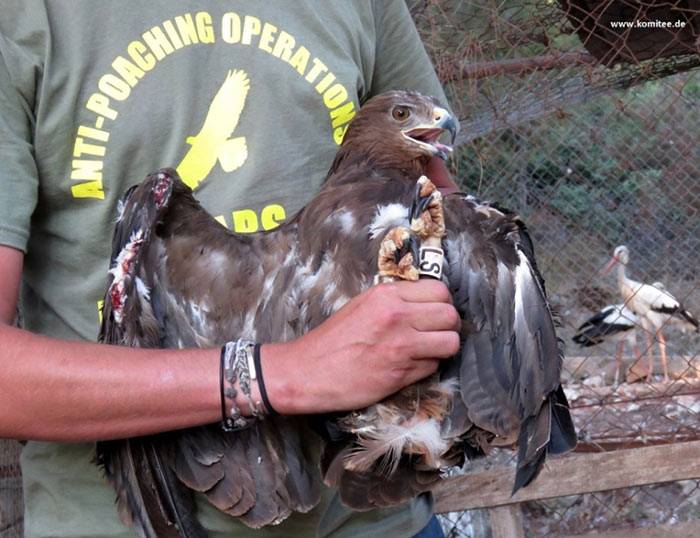
In 2019 we hope to expand our efforts and duration of our bird protection camps to be present before the official opening of the hunting season as well as during the peak time for eagle migration during the autumn.
To help support our operations and put boots on the ground to guard the flyway please consider donating via www.paypal.me/forbirds


